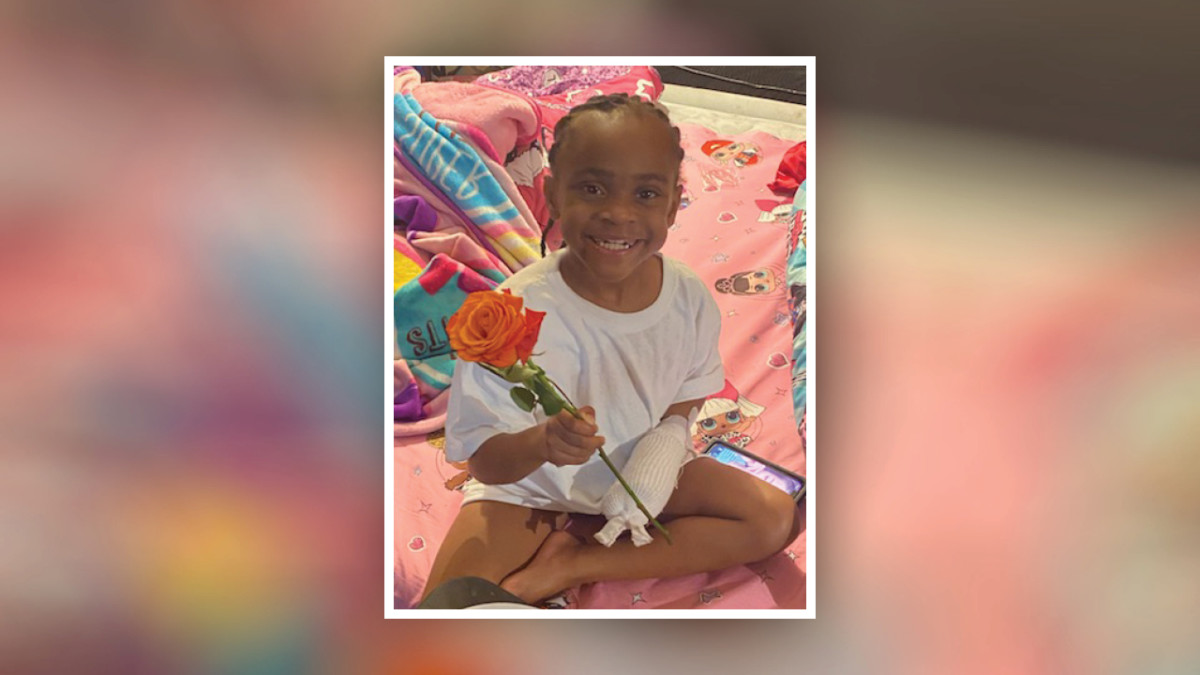It was the middle of summer break for seven-year-old Tyneka White when an unexpected tragedy scarred her for life.
“My niece was pulling the ramen noodles out of the microwave, and Tyneka bumped into her, not seeing her,” said Tyneka’s mom, Ashkea White. “My niece did say that she tried to say, ‘Hey, watch out,’ but it just didn’t happen quickly enough.”
Boiling water spilled down Tyneka’s shoulders, back and hands, severely scalding her. Not knowing how to react, Tyneka ran around the house, running in circles through the kitchen and the living room where her mom was sitting.
“She just kept running in circles,” White said. “I had to get up and stop her. Then I looked down at her back, and it looked like her skin was gone.”
Over the last three years, 54% of pediatric burns referred to Burn and Reconstructive Centers of America (BRCA) were thermal scald burns. Ramen noodles are a common mechanism along with coffee, tea or bathwater. Children and older adults are at an increased risk of scald burns due to their skin sensitivity. It is crucial to test bathwater temperatures, help with hot foods and keep hot liquids out of reach to avoid accidents that may result in serious injuries.
Tyneka suffered second-degree burns on her left hand, right shoulder, half of her back and some of her buttock’s area. She received specialized treatment at the headquarters of BRCA; the Joseph M. Still Burn Center providing services at Doctors Hospital of Augusta, GA.
“This has been a hard experience to go through with my child,” White said. “I was off work for about two weeks. I had to sleep with her in the living room on an air mattress because she couldn’t climb into her bunkbed. And nothing really helped with the pain or itching.”
White struggled with guilt, stress and sadness over what happened to her daughter. She constantly replayed that day in her memory, searching for a way it could have been avoided.
“It’s still traumatic for her,” White said. “From time to time, she’ll [Tyneka] say, ‘Mama, I wish that never happened to me.’ And her saying that makes me cry because I wish it never happened to her either.”
Tyneka also struggles with what happened to her and the changes to her appearance. Her skin is different than it used to be. A painful keloid scar now lives on her shoulder and, while reconstruction surgery may help heal these complications, it’ll take time to heal the trauma.
“After her hand healed, she continued to wear the wrap because she would say, ‘Mama, this is my ugly skin,’” White said. “I really had to nurture her and tell her she’s beautiful because she was very self-conscious about it when it first happened.”
She didn’t want to go back to school. The kids in her first-grade class kept asking her what had happened to her hand. When White heard about this, she told her daughter to tell them the truth. Childhood burns can have both mental and physical repercussions over the years, and opportunities like this—to share their experiences—can help them overcome what happened and find acceptance.
The spreading of love and acceptance goes both ways. Since the accident in June this year, Tyneka has returned to her routine, playing, dancing and making videos for social media. In one of these videos, Tyneka prays for all those receiving care for burns.
“I was having a challenging time at work one day, and I was just taking a break and going through my phone when I saw that video,” White said. “It was so amazing that as a child, she understood that you pray for love but also pray for other people in your time of need.”
Watch the video below.
Further Information
From scald burns to contact burns and fires, microwaves pose serious health concerns for users of all ages when misused or malfunctioning. Here are some tips to help you stay safe while using your microwave oven:
- Never set anything on top of the microwave. The microwave may heat up, causing the items to melt or catch fire.
- Do not allow children to operate the microwave if they are not tall enough to safely reach in and out of it without straining.
- Do not use the microwave if the power chord or plug is frayed or damaged.
- Microwaves tend to heat food unevenly. Make sure you stir the food to avoid eating a part that has been superheated and may burn you.
- Liquids should not be microwaved for more than two minutes to avoid the liquid exploding in the microwave or on you when you take it out.
- Use heat-resistant mittens or potholders when removing food from the microwave, especially if heated in a glass container, as these may be very hot.
- If you are defrosting something and it will take longer than 2 minutes, cook it at a lower power setting and check it frequently.
- If a fire occurs in the microwave, unplug the appliance to stop the fan from blowing and the fire from spreading. This should suffocate the fire. However, if the fire continues, do not carry the appliance outside. Instead, get to safety and call 911.
Our providers at Burn and Reconstructive Centers of America are available 24 hours a day, seven days a week. If you would like more information, please visit us at www.burncenters.com. If you would like to speak to our bilingual burn information services representatives, please call us at (855) 863-9595.
